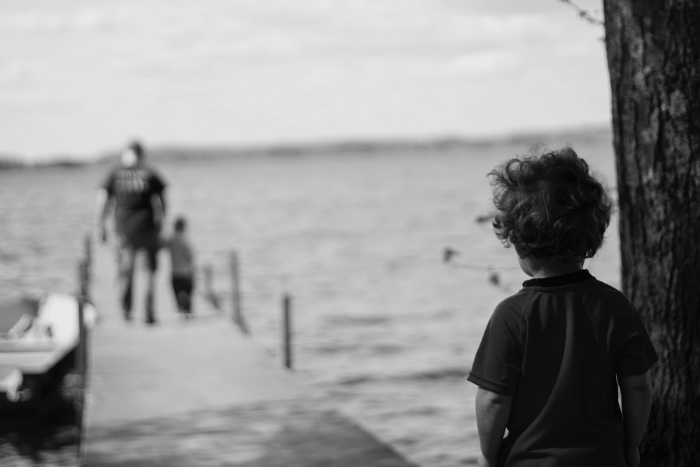Sibling Abuse in Childhood
Victims of sibling abuse may feel:
Self critical
Shame
Difficult to trust others
Need to distance from the abusive sibling as adults
Memories from childhood are unclear or forgotten
Depressed
Physical pain
Sibling abuse is an often ignored or forgotten type of trauma that can leave deep scars in the victim. This type of trauma is as painful as parental abuse which seems to get more attention in therapy, because is often is the most obvious form of abuse. Another reason this issue gets less attention might be that the abuser also is a victim and it is painful and difficult to see that this person in a negative light. In addition in a dysfunctional family it is not safe to share feelings and experiences. So the victim of sibling abuse has kept silent for many years. This silence is a survival strategy for the child and as an adult this continues unconsciously.
Sibling relationships can provide a special and supportive peer in the family system. They can be our life witness and life long connection. In childhood they can be our ally and friend in a different way from parents and other adults.
Sibling connections can be nourishing and healthy, but can also. But can also be disturbing and painful because of rivalry and competition. The birth of a sibling can pose a threat to our care and life when our parents have new priorities and objects of love. Some children can be quite cruel to a younger sibling and a usually told to repress any feeling of protest and anger. The birth of a sibling means the family system changes.
In dysfunctional families the birth of a sibling can result in sibling abuse and rivalry. This happens because the children are neglected and have to fight to get love and attention. It may also be due to favoritism. Parents may favor one sibling and another might be a scapegoat or treated like the black sheep. This creates tension confusing and guilt in the children. They are put into roles that become fixed and unhealthy, making it difficult to relate. So the children rather than being supportive of each other become enemies and distant from each other.
Some older children are put in a parental role with younger siblings which can result in power struggles, physical and psychological abuse being legitimized. They have free reins to abuse when no one is around to stop it.
If the parents are neglectful or absent or abusive themselves they may not be able to stop abusive behavior between the children. If the parents are abusive children might hide behind others or throw a sibling under the bus in order to avoid being the target. Parental abuse creates an unhealthy and unsafe environment where siblings can’t trust each other. Where everybody is hyper vigilant looking out for signs of danger.
Toxic siblings relationship are a result of weakness in the family system and it’s boundaries. Some parents cannot assert their parental authority or act as responsible parents who guide and support their children. They may be depressed, anxious, overworked, abusive, narcissistic, stressed or immature. Children who are left to themselves may not develop healthy boundaries or patterns.
Parents who are immature or afraid to set boundaries may not be able to stop abuse between siblings. They turn the blind eye and hopes it goes away, but usually it does not.
As adults siblings of dysfunctional families, even when there was sibling abuse, may bond as survivors (trauma bonding). But often the relationship is symbiotic and unhealthy. Some may be estranged because of the trauma and abuse. The lack of contact may be a healthy way of keeping the abuser and memories of the abuse at a distance.
When parents are absent the children can bully or manipulate each other. Sibling abuse include beating, sexual abuse, ignoring, humiliation, teasing and bullying. This kind of experience leads to trauma in the victim causing many different issues in adulthood. Including low self-esteem, anxiety and relationship problems.
Abusive parents who scapegoat and blame a child or have anger issues. Who are explosive, yelling or violent towards others, set up an environment where abuse and violent behavior is ‘normal’. This can lead to sibling abuse.
For siblings some aggression being expressed in play or daily life is ok and might be ways of learning to express and set boundaries.



 Skyld defineres som noget vi har gjort, som vi fortryder. Det er en handling, som vi godt ved er forkert. I mange sammenhænge er skyld er en vigtig del af det, at leve og fungere i et samfund. Vi bliver nød til at kende gældende rammer og regler for at leve i fælleskabet. Fornemmelsen og oplevelsen af skyld siges at opstå når barnet er mellem 3 og 6 år. Her lærer barnet at fungere i samfundet, rette ind og blive accepteret.
Skyld defineres som noget vi har gjort, som vi fortryder. Det er en handling, som vi godt ved er forkert. I mange sammenhænge er skyld er en vigtig del af det, at leve og fungere i et samfund. Vi bliver nød til at kende gældende rammer og regler for at leve i fælleskabet. Fornemmelsen og oplevelsen af skyld siges at opstå når barnet er mellem 3 og 6 år. Her lærer barnet at fungere i samfundet, rette ind og blive accepteret.
 Hvad er forskellen på kognitiv adfærdsterapi og traumeterapi?
Hvad er forskellen på kognitiv adfærdsterapi og traumeterapi?
 Kroppen husker det du har oplevet gennem livet
Kroppen husker det du har oplevet gennem livet

